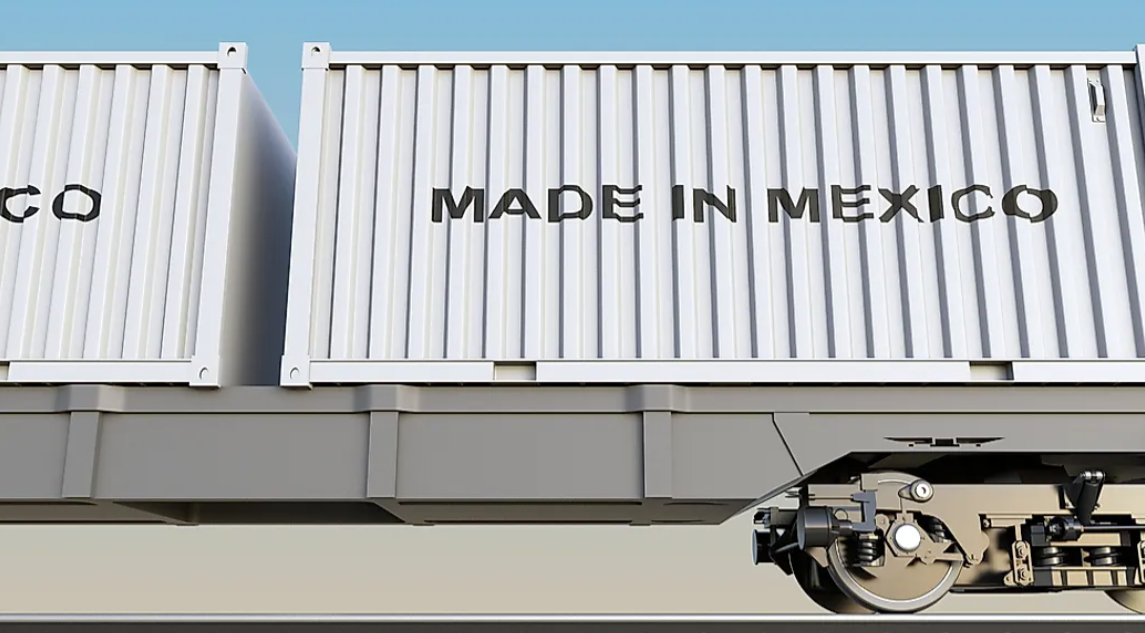Strong annual growth in Mexico’s total exports this year has been driven by a substantial double-digit surge in auto sector exports.
According to preliminary data released by the national statistics agency INEGI on Wednesday, the value of exports saw a 3.8% annual increase in both August and the first eight months of the year. Additionally, non-oil exports witnessed a 4.3% uptick last month and a 5.8% rise between January and August.
In the previous month, Mexico’s total exports reached a value of $52.36 billion, and for the period spanning January through August, they totaled $391.87 billion. The primary contributors to these figures were the manufacturing sector, encompassing the auto industry.
Exports from the manufacturing sector amounted to $47.15 billion in the last month and $348.95 billion in the first eight months of 2023, comprising approximately 90% of Mexico’s total export value during these respective periods. Notably, the value of manufacturing exports experienced a 4.3% annual growth in August and a 6% increase in the initial eight months of the year.
Even more remarkable was the annual growth in the value of automotive exports, surging by 11% in the last month and an impressive 16.1% between January and August.
In the agriculture sector, which includes high-earning products such as avocados and berries, exports saw a 2.9% increase in the first eight months of the year, reaching just over $15 billion in value. Meanwhile, mining sector exports witnessed a 4.9% rise, reaching a total of $6.35 billion.
Slightly over 83% of the revenue generated from non-oil exports originated from products shipped to the United States. Mexico held the position of the United States’ largest trade partner during the first half of this year.
According to INEGI, the value of oil exports experienced a notable 22% decline in annual terms from January to August, amounting to $21.53 billion. Mexico is actively working towards achieving fuel self-sufficiency by 2024, leading to the decision to retain more crude within the country for domestic processing rather than exporting it.
Preliminary data indicates that the value of imports into Mexico registered a 4.3% annual decrease last month and a marginal 0.5% decline in the initial eight months of the year. Import figures stood at $53.73 billion in August and reached $400.48 billion for the period spanning January to that month. Consequently, Mexico recorded trade deficits in both of these timeframes.
In specific terms, Mexico’s deficit for the previous month amounted to $1.37 billion, representing a significant 75.9% reduction compared to August of the previous year. The January to August deficit stood at $8.6 billion, marking a notable 65.2% decrease compared to the same period in 2022.
The bulk of Mexico’s import expenditures were directed towards intermediate goods, which are products used as inputs in the manufacturing of other goods. During the initial eight months of the year, the value of imported intermediate goods reached $305.63 billion, reflecting a 3.8% decrease compared to the corresponding period in 2022.
In contrast, imports of consumer goods surged by 5.9% to reach $57.1 billion, while the importation of oil experienced a significant decline of 26.8%, totaling $12.93 billion.
Mexico allocated $37.74 billion towards capital goods, including machinery, tools, and heavy equipment in the first eight months of the year. This represents a substantial increase of 22.5% when compared to the figures from 2022.
(Source: Mexico News Daily)









